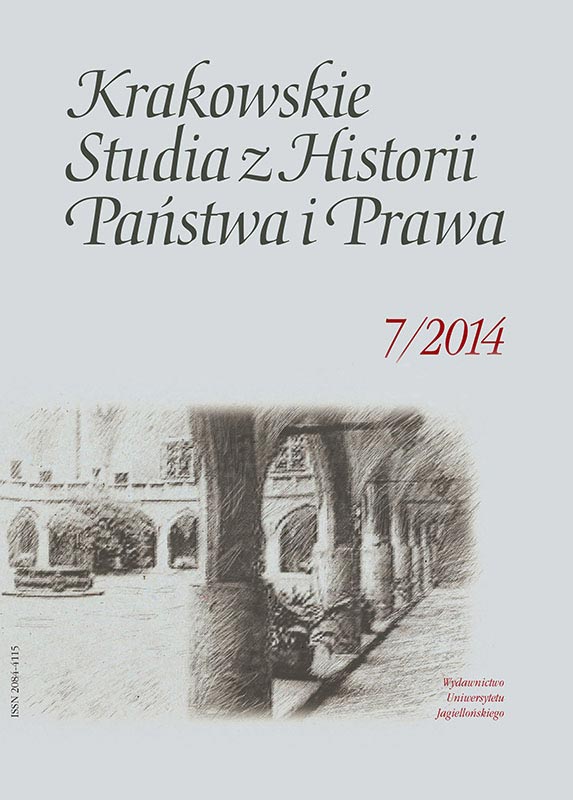Monografia procesu kryminalnego w miastach małopolskich doby nowożytnej (M. Mikołajczyk, Proces kryminalny w miastach Małopolski XVI-XVIII wieku, Wydawnictwo Uniwersytetu Śląskiego, Katowice 2013, 620 s.; Prace Naukowe Uniwersytetu Śląskiego)
The Monograph of Criminal Trial as Conducted in the Towns of Małopolska Region of the Early Modern Era (M. Mikołajczyk, A Criminal Trial in Towns of Małopolska Region between the 16th and 18th Centuries, Silesia University Press, Katowice 2013)
Author(s): Maciej MikułaSubject(s): Law, Constitution, Jurisprudence, Essay|Book Review |Scientific Life, History of Law, Book-Review
Published by: Wydawnictwo Uniwersytetu Jagiellońskiego
Summary/Abstract: The reviewed book is an extensive study devoted to criminal trial as conducted in the towns of Southern Poland of early modern period. The author relied on particularly rich source material composed of norm-setting acts, writings of lawyers engaged in theoretical analysis and a large number of court books referring to penal cases, both those presented in the form of manuscripts as well as those that appeared in print. The significance of the study consists in the exploitation by its author of the sources illustrative of legal practice. The author investigated, with a particular precision, the factual course that the municipal criminal trial used to take in more serious penal cases. He laid a particular emphasis on the fairly well source-supported evidentiary proceedings. Worthy of note is his analysis devoted to the substantial law basis according to which the judgements were passed. The analysis showed that in the 16th through 18th centuries, in the municipal courts the local customary law played significant role, apart from that played by the Saxon and Magdeburg legal systems. On the basis of the research that he made the author suggests a conclusion that, despite the differences detectable in the practice of the respective towns, there functioned a uniform municipal penal procedure. The latter was characterized by certain features. These were: 1) the absence – in general – of individualized inquiry that would precede the judicial part of proceedings; 2) the instituting and conducting the judicial proceedings through ex officio method being regarded as something absolutely exceptional; 3) the proceedings were – as a rule – instituted due to the proposal of the plaintiff although sometimes they were instituted through the handing one of the
Journal: Krakowskie Studia z Historii Państwa i Prawa
- Issue Year: 7/2014
- Issue No: 4
- Page Range: 653-658
- Page Count: 6
- Language: Polish

